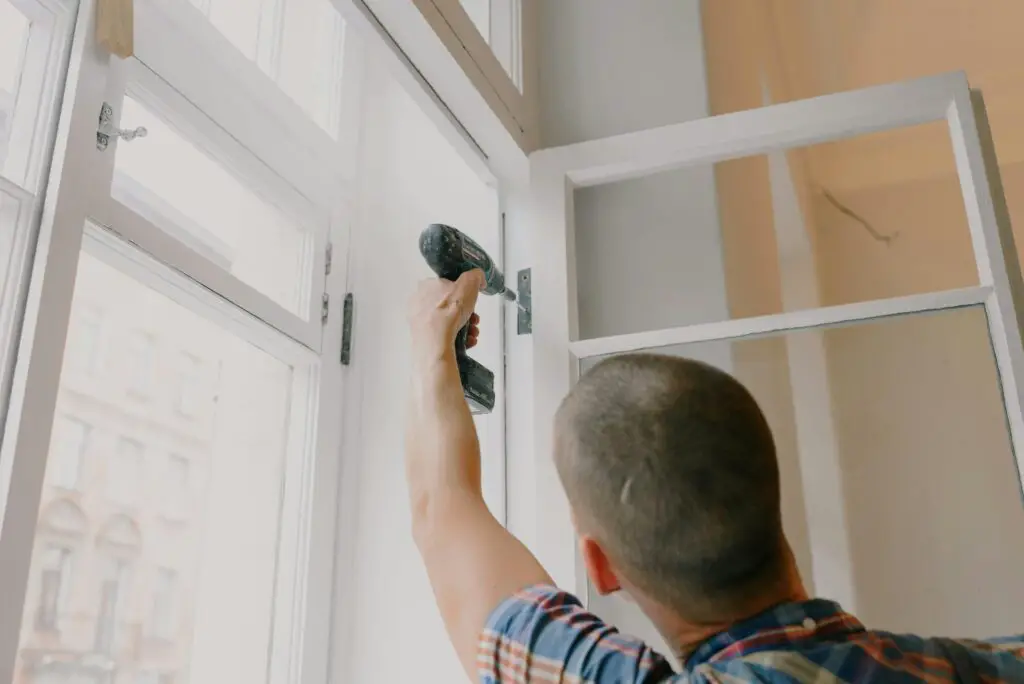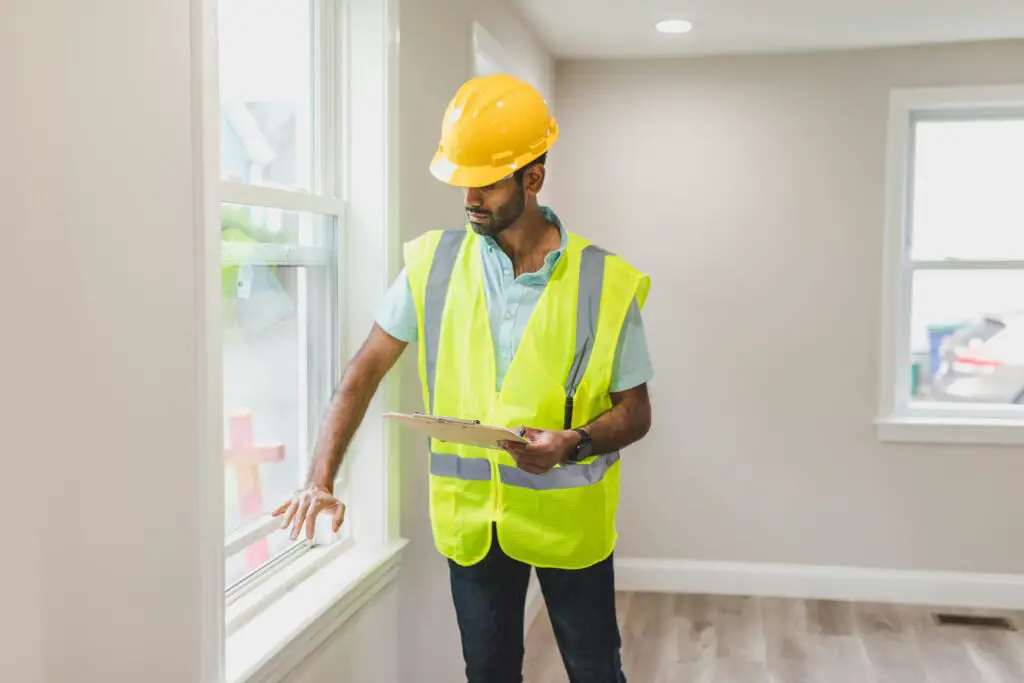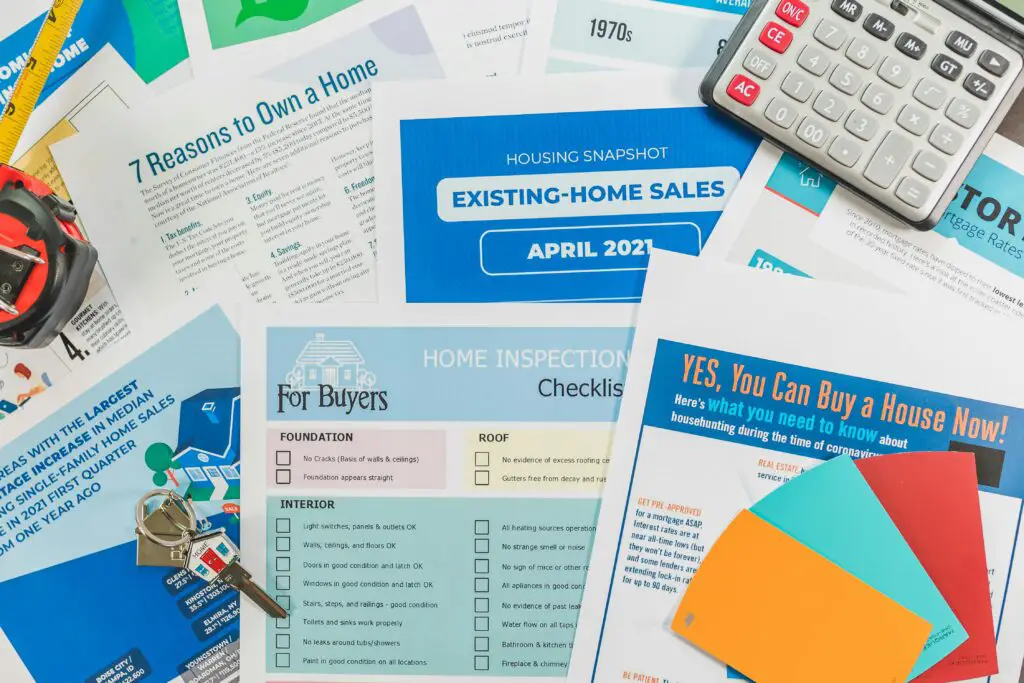1. Skipping the Pre-Approval Process

Many first-time homebuyers make the mistake of jumping into the home-buying process without getting pre-approved for a mortgage, a crucial first step. Pre-approval provides buyers with a clear understanding of how much they can afford, saving time and preventing disappointment. Without pre-approval, buyers often fall in love with homes that exceed their financial limits, only to face heartbreak when their mortgage application falls short. Additionally, sellers are more likely to take offers from pre-approved buyers seriously, especially in competitive markets. The pre-approval process also gives buyers insight into potential loan terms, such as interest rates and monthly payments, allowing them to budget more effectively.
Skipping this step can lead to unnecessary delays when making offers, as buyers scramble to secure financing at the last minute. This mistake can even result in losing out on their dream home to a better-prepared buyer. Pre-approval not only streamlines the process but also puts buyers in a stronger position to negotiate. For a detailed guide on pre-approval and why it’s essential, visit Rocket Mortgage. By starting with pre-approval, buyers can confidently navigate the housing market and avoid unnecessary roadblocks.
2. Underestimating Closing Costs

First-time homebuyers often focus solely on saving for a down payment, overlooking the significant expenses involved in closing costs. These costs, which can range from 2% to 5% of a home’s purchase price, include fees for inspections, appraisals, title insurance, and legal documentation. For example, on a $300,000 home, closing costs could easily add an additional $6,000 to $15,000. Many buyers are caught off guard by these expenses, leading to financial strain just before closing. It’s crucial to budget for these costs early in the home-buying process to avoid surprises.
Some buyers may even qualify for assistance programs that help cover part of the closing costs, but these options are often overlooked. Additionally, understanding what each fee entails can help buyers identify potential areas for negotiation with the seller. For a breakdown of typical closing costs and how to prepare, check out NerdWallet. Being aware of these hidden costs ensures buyers are financially ready for every step of the transaction.
3. Ignoring Additional Homeownership Costs

Homeownership comes with more expenses than just a monthly mortgage payment, but many first-time buyers fail to account for these additional costs. Property taxes, homeowners insurance, maintenance, and utilities can add hundreds—or even thousands—of dollars to a homeowner’s annual budget. For example, regular upkeep, such as HVAC servicing, lawn care, or unexpected repairs, can strain finances if not planned for. Furthermore, property taxes can vary greatly depending on the location, potentially increasing significantly over time.
Failing to budget for these recurring expenses can lead to financial challenges, forcing homeowners to dip into savings or take on debt. Buyers are encouraged to set aside at least 1% of their home’s value annually for maintenance and repairs. Homeowners insurance premiums can also fluctuate based on factors like location, coverage levels, and claim history. For a detailed guide on estimating the total cost of homeownership, visit Zillow. Factoring in these hidden costs upfront helps ensure long-term financial stability and prevents unexpected surprises.
4. Falling in Love with a Home Outside Their Budget

It’s easy for first-time buyers to get emotionally attached to a home that exceeds their financial limits, but this can lead to long-term financial stress. Overspending on a property often results in higher monthly payments, leaving little room for other essential expenses, such as utilities, maintenance, or savings. Buyers who stretch their budgets may also face difficulties qualifying for loans or covering unexpected costs that arise after moving in. Additionally, overextending financially can impact future goals, such as saving for retirement or funding education.
While it’s tempting to push financial boundaries for the “perfect” home, buyers should remember that their dream property may not always be their most practical choice. Consulting with a financial advisor or real estate agent can help buyers set realistic expectations. Tools like mortgage calculators can also help determine a comfortable price range. For tips on sticking to your budget during the home-buying process, visit Bankrate. Staying disciplined ensures buyers can enjoy homeownership without unnecessary financial burdens.
5. Overlooking the Importance of Location

First-time buyers sometimes focus entirely on the house itself, overlooking the significance of its location. A beautiful home in an undesirable area can quickly lead to regrets about commute times, school districts, or neighborhood safety. Proximity to amenities like grocery stores, parks, and medical facilities also plays a significant role in a home’s long-term appeal. A poor location can negatively affect a home’s resale value, making it harder to sell later on.
Additionally, buyers should consider future developments in the area, such as zoning changes or new construction, which could impact the neighborhood’s character. Visiting a potential neighborhood at different times of the day can provide insights into traffic patterns and noise levels. It’s also wise to research local crime rates, school performance, and property tax trends before making a decision. For advice on evaluating a neighborhood’s potential, visit Realtor.com. Choosing the right location is just as important as finding the right house and can significantly impact long-term satisfaction.
6. Skipping a Professional Home Inspection

To save money or expedite the buying process, some first-time buyers opt to waive a professional home inspection—a decision that can prove costly in the long run. Home inspections uncover hidden issues such as faulty wiring, plumbing leaks, structural damage, or outdated HVAC systems. Without an inspection, buyers risk purchasing a home with expensive repair needs that could have been addressed before closing. Even newly constructed homes can have defects that only a trained inspector can identify.
The cost of a home inspection, which typically ranges between $300 and $500, is a small price to pay for peace of mind and protection against unforeseen expenses. Additionally, inspection reports can provide buyers with leverage during negotiations, enabling them to request repairs or a lower price. For a detailed guide on the importance of home inspections, visit The Balance. Skipping this step can lead to financial and emotional stress, making inspections a vital part of any home-buying process.
7. Not Understanding the Market

Jumping into a hot real estate market without proper research can be a costly mistake for first-time buyers. Market conditions can vary widely, and failing to understand whether it’s a buyer’s or seller’s market could lead to overpaying for a home. In a seller’s market, where demand outweighs supply, homes may sell for well above the asking price, leaving inexperienced buyers vulnerable to making hasty decisions. On the other hand, a buyer’s market offers more room for negotiation, but buyers who are unaware of this may miss out on opportunities to secure better deals.
Many first-timers also overlook key indicators such as comparable home prices, neighborhood trends, and potential market downturns. Doing thorough research or consulting a real estate agent with local expertise can provide invaluable insights into pricing and timing. Moreover, understanding market trends can help buyers identify emerging neighborhoods where property values are likely to appreciate. For an overview of how to navigate market conditions, visit Investopedia. A well-informed buyer is better equipped to make strategic decisions and avoid overpaying in a competitive market.
8. Making a Small Down Payment

Although low down payments can make buying a home more accessible, they often come with long-term financial consequences that many first-time buyers overlook. Putting down less than 20% typically requires paying for private mortgage insurance (PMI), which increases monthly costs without building equity. Additionally, smaller down payments result in higher loan amounts, leading to more interest paid over the life of the mortgage. Buyers may also face stricter terms or higher interest rates when opting for a lower down payment.
While government-backed programs like FHA loans make homeownership achievable with minimal upfront costs, buyers should carefully weigh the trade-offs. Saving for a larger down payment not only reduces monthly payments but also demonstrates financial stability to lenders. For those unable to save 20%, exploring options such as down payment assistance programs or grants can help offset costs. According to Forbes, putting down as much as you can comfortably afford is often a smarter financial move. A larger down payment can provide greater flexibility and long-term savings, making it worth the initial sacrifice.
9. Overlooking Resale Potential

First-time buyers often focus entirely on their immediate needs, such as square footage or number of bedrooms, while ignoring a home’s future resale potential. Factors like location, layout, and curb appeal significantly impact a property’s ability to attract buyers down the road. Homes in less desirable areas or with poor layouts, such as awkward room configurations or insufficient storage, may struggle to retain value over time. Buyers should also consider features that appeal to a wide range of potential buyers, such as modern kitchens, energy-efficient systems, and updated bathrooms.
Failing to think ahead can lead to challenges when it’s time to sell, especially if the home lacks universal appeal. Additionally, major flaws like proximity to busy roads or lack of parking can deter future buyers, regardless of the property’s other strengths. Consulting with a real estate agent can help identify homes with strong resale value while meeting current needs. For tips on assessing a home’s resale potential, visit Zillow. Balancing present desires with future marketability is key to making a sound investment.
10. Taking on New Debt Before Closing

One of the most common mistakes first-time buyers make is taking on new debt while their mortgage application is still being processed. Excited about their new home, buyers may open credit cards or take out loans for furniture, appliances, or other expenses. However, this additional debt can significantly affect their credit score and debt-to-income ratio, potentially jeopardizing their mortgage approval. Lenders closely monitor a buyer’s financial activity before closing, and any significant changes can raise red flags or result in a denial of the loan. Even minor purchases on a credit card can tip the scales, making buyers appear riskier to lenders.
It’s critical to maintain financial stability and avoid major financial decisions until after the home purchase is complete. Buyers should also refrain from co-signing loans, as this adds liability to their credit report. For advice on maintaining financial health during the buying process, check out Experian. Avoiding new debt ensures that buyers can successfully close on their home without unnecessary complications.
11. Failing to Negotiate

Negotiation is a key aspect of the home-buying process, but many first-time buyers feel intimidated or lack the confidence to advocate for themselves. This can result in paying the full asking price or missing opportunities to negotiate on repairs, closing costs, or other concessions. Buyers who skip negotiations may also overlook incentives that sellers are willing to offer, such as including appliances or covering home warranty fees.
A skilled real estate agent can provide valuable guidance, helping buyers identify areas where negotiation is appropriate and likely to succeed. Even in competitive markets, there’s often room for compromise, especially on non-price terms like move-in timelines or repair requests. Additionally, understanding the seller’s motivations—such as a need for a quick sale—can provide leverage during negotiations. For tips on becoming a more confident negotiator, visit Redfin. Negotiating effectively can save buyers thousands of dollars and ensure they get the best possible deal.
12. Not Researching Loan Options

First-time buyers often default to the first loan option presented to them, but failing to explore alternatives can cost thousands over the life of a mortgage. Loan options vary widely, from conventional loans to government-backed programs like FHA, VA, or USDA loans, each with unique benefits and eligibility requirements. Some loans are better suited for buyers with low credit scores, while others offer perks like lower down payments or reduced closing costs.
Comparing interest rates, loan terms, and additional fees across multiple lenders can help buyers find the most affordable option. Prequalification with different lenders is also a great way to understand available options without committing. Additionally, some state and local programs offer down payment assistance or grants for first-time buyers, which can make homeownership more attainable. For an overview of loan types and their advantages, visit Mortgage Reports. Doing thorough research ensures buyers secure a loan that aligns with their financial goals and circumstances.
13. Rushing the Decision

Eager to become homeowners, many first-time buyers rush into purchasing a property without fully considering whether it meets their needs or aligns with their long-term goals. While the excitement of finding a home can be overwhelming, impulsive decisions often lead to buyer’s remorse. Rushing may result in settling for a home that’s too small, too far from work, or in a neighborhood that doesn’t feel right. Additionally, buyers who skip due diligence, such as reviewing inspection reports or researching the area, risk facing unforeseen issues after closing.
Taking the time to evaluate multiple options and revisit properties ensures buyers make informed decisions. Working with a trusted real estate agent can also provide clarity and guidance during the decision-making process. For advice on pacing yourself during the home-buying journey, check out Better Homes & Gardens. Patience pays off, as a thoughtful approach often leads to greater satisfaction and fewer regrets in the long run.
